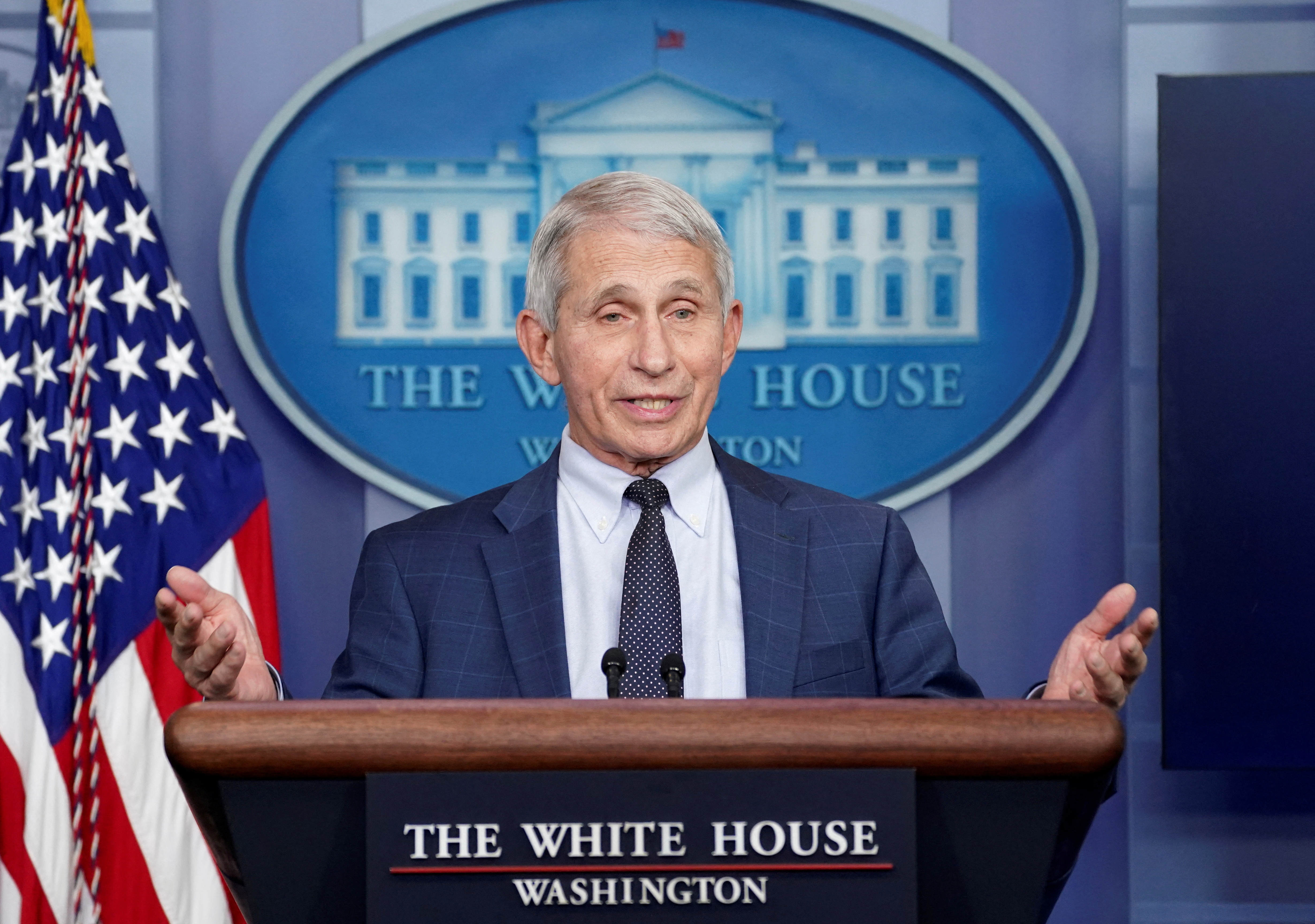
Dr Anthony Fauci, the top infectious disease expert in the United States who emerged as the public face of the country’s COVID-19 pandemic response, has announced that he will step down in December.
Fauci said in a statement on Monday that he will leave both his post as director of the National Institute of Allergy and Infectious Diseases (NIAID), as well as that of top medical adviser to President Joe Biden, to “pursue the next phase” of his career.
“It has been the honor of a lifetime to have led the NIAID, an extraordinary institution, for so many years and through so many scientific and public health challenges. I am very proud of our many accomplishments,” said Fauci, who has led the institute for 38 years.
“While I am moving on from my current positions, I am not retiring. After more than 50 years of government service, I plan to pursue the next phase of my career while I still have so much energy and passion for my field.”
Fauci became the most recognisable figure from the scientific community during the early days of the COVID-19 crisis, acting as a source of sober medical authority for many Americans while frequently butting heads with Donald Trump over the former president’s pandemic response.
Trump verbally attacked Fauci during his 2020 presidential campaign, hinting at one point that he would fire him if re-elected.
But the top medical expert enjoyed a warm relationship with Biden, who on Monday praised Fauci as a “dedicated public servant and a steady hand with wisdom and insight honed over decades at the forefront of some of our most dangerous and challenging public health crises”.
“His commitment to the work is unwavering, and he does it with an unparalleled spirit, energy, and scientific integrity,” Biden said in a statement, extending his “deepest thanks” to Fauci.
During his nearly 40-year term at the helm of the NIAID, Fauci has been involved in the US response to a number of public health challenges, from HIV/AIDS to the Ebola virus and the COVID-19 pandemic.
He was awarded the Presidential Medal of Freedom in 2008, the highest honour a US civilian can receive.
While Fauci did not share details about his plans for the future, he noted in Monday’s statement that he would “use what I have learned as NIAID Director to continue to advance science and public health and to inspire and mentor the next generation of scientific leaders as they help prepare the world to face future infectious disease threats”.
He also will step down as head of the NIAID Laboratory of Immunoregulation, the statement said.
While Biden drew a sharp contrast with Trump on COVID-19, stressing the need to impose public health measures to stem the spread of the virus, coronavirus-related deaths have continued to rise during his tenure.
The Biden administration also has been criticised for its failure to push for global vaccine equity.
The US surpassed one million COVID-19 deaths in May, and public health agencies have started to search for answers to understand the nation’s failure to contain the virus.
The Centers for Disease Control and Prevention (CDC), the country’s top public health agency, announced a series of reforms last week amid criticism. The agency said that its response to the deadly pandemic “did not reliably meet expectations”.







